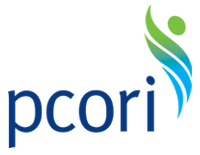There’s a deadline this week for everyday people interested in shaping a controversial initiative from the 2010 health law. But whether or not enough people will follow through — or are aware of the timing — is unclear, according to advocates.
 Patients and other people who might not normally be involved in medical research have until noon Eastern Time on Wednesday to submit applications for one of about 60 reviewer positions being offered by the Patient-Centered Outcomes Research Institute (PCORI). The reviewers will help select the institute’s first major research projects.
Patients and other people who might not normally be involved in medical research have until noon Eastern Time on Wednesday to submit applications for one of about 60 reviewer positions being offered by the Patient-Centered Outcomes Research Institute (PCORI). The reviewers will help select the institute’s first major research projects.
PCORI, which is an independent non-profit established by the health law, will fund and make recommendations based on comparative effectiveness research. Findings are meant to improve decision-making by health care providers, but the concept has been a political flashpoint in recent years. Opponents say the research will be used to deny and ration treatment. By involving patients and other people with a layperson’s perspective, officials expect to address those concerns.
Supporters and detractors alike now have an opportunity to influence PCORI’s direction. The institute is gearing up to consider its first large round of research funding, a $13 million pilot projects grant program, which will look into best practices for comparative effectiveness research and will touch on how to perform the research, as well as how patients and others should be involved in it.
Grant applications will be considered early next year by an estimated 20 review panels, each composed of about 17 scientists and three “stakeholders” — as PCORI calls them — who could be patients, or health care providers, insurers and other non-scientists. Final decisions on 40 expected research projects will be made be made by the institute’s board of governors.
As of Monday morning, PCORI had received 160 reviewer applications, with an unknown number of patients mixed among the many other people interested. PCORI Executive Director Joe Selby expects to receive more than 250 total. He also expects two out of the three stakeholders on each review panel to be patients.
Finding people for the job is not going to be easy. “We’re looking for people who identify themselves as patients and have previous training or experience reviewing scientific proposals, or have a strong interest and experience in one of the eight areas” covered by this first round of research funding, Selby said. While successful applicants are being offered training, there is an explicit preference for research experience.
Because of this, patient advocates have expressed concern over the pool of patients available. Jessie Gruman, president of the Center for Advancing Health, noted at a recent conference that it will prove challenging for PCORI to find trained, interested patients, who also have the free time. Similar panels run by the Food and Drug Administration and other groups already have recruitment troubles when it comes to patients, she added.
Joanna Kaufman, an expert on patient engagement with the Institute for Patient- and Family-Centered Care, disagreed. Kaufman said the potential recruitment problem isn’t because of a lack of training or time. The real problem is the lack of publicity.
“There is a [patient] pool out there,” Kaufman said. “It’s just a matter of getting the information to them.”
Kaufman’s organization has itself sent out notices about the application deadline, and Selby said that PCORI has reached out to patient advocacy groups and others who were already submitting comments to the institute and participating in its meetings.






